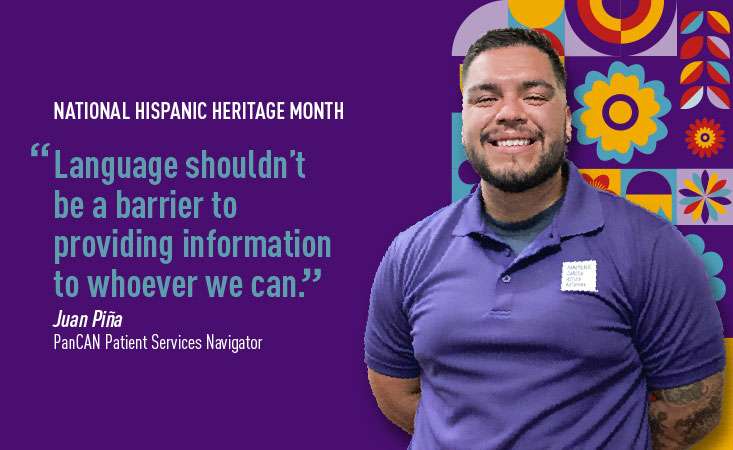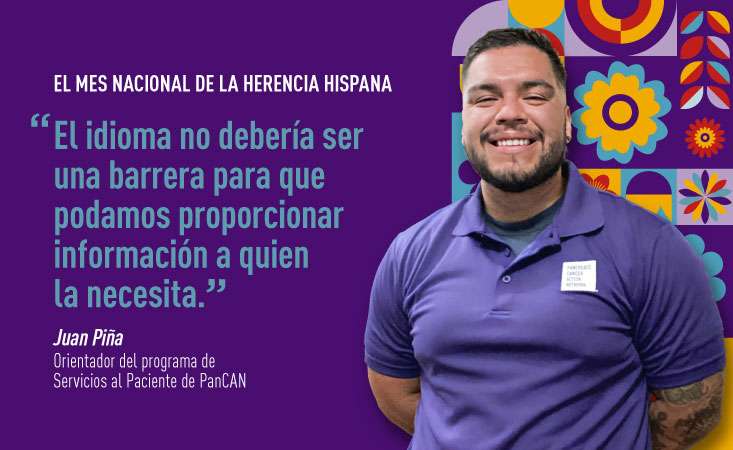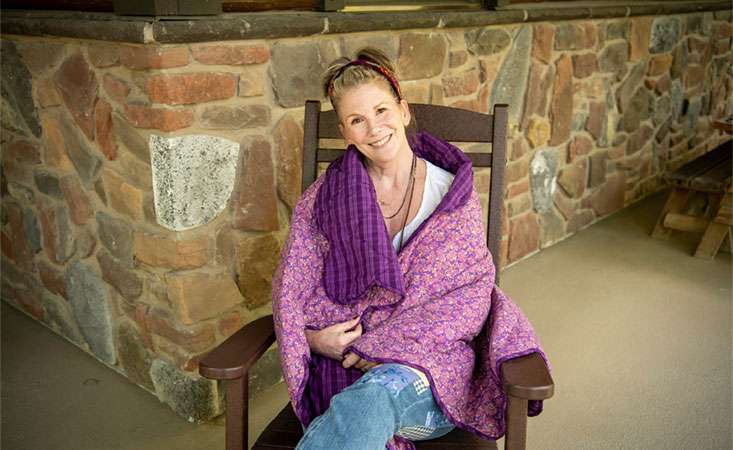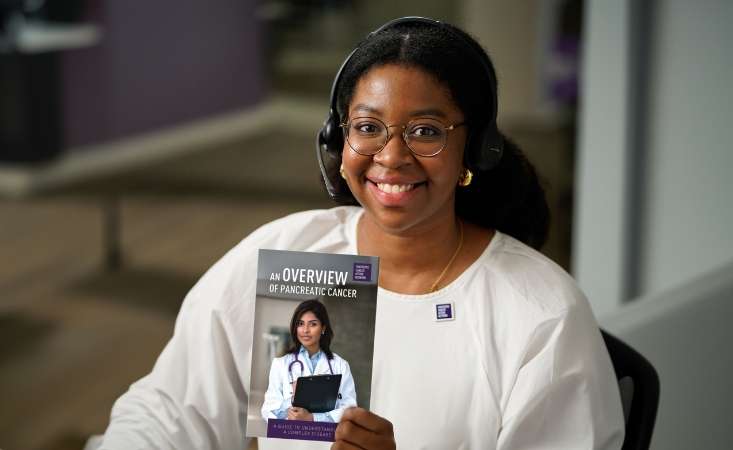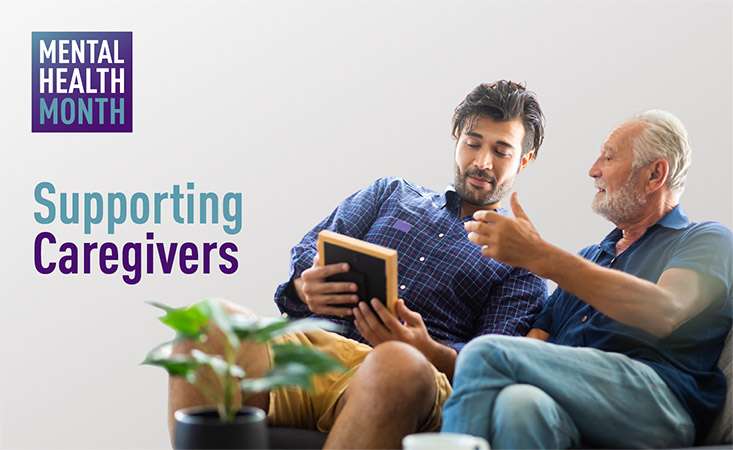
As we wrap up Mental Health Month, we are reflecting on the many conversations we’ve seen happen about wellness, self-care, the importance of seeking support and so much more.
Today, we are focusing on caregivers and how important it is for them to prioritize their mental health. We hear from PanCAN volunteer Jeanne Lipshetz about some things she learned when she assumed the caregiver role for loved ones three different times. And Nicole Lise Feingold, MA, senior director of PanCAN Patient Services, talks about the challenges and rewards of being a caregiver.
Easing the Burden
“Most people caring for an ill loved one don’t consider themselves a caregiver,” said Jeanne Lipshetz, a PanCAN volunteer in Milwaukee, Wisc. “I for one was that person.”
In 2010, Jeanne became a caretaker not once but twice, for her mother and sister who were both diagnosed with pancreatic cancer that year. When her husband, Steve, went through a serious illness just this past year she once again took on the caregiver role.
In every situation, she assumed the responsibility out of love for her family, not thinking too much about what she may need. Now, Jeanne said she realizes just how critical it is for caregivers to have support too – and that it comes from a variety of people, from casual acquaintances to close friends and family.
Sometimes she found that what was meant as helpful could add an additional burden or undue stress -- especially when exhausted and overwhelmed. Here, Jeanne shares some things she heard from those around her and offers suggestions to be more proactive and positive.
Instead of: “You look tired.”
Try: Words of encouragement
“Yes, I am tired. Probably overtired. I could have been up most of the night worrying about my loved one or shedding tears as you don’t want your loved one to see how stressed you really are. Instead, please give some words of encouragement, give a compliment, a hug. This means more than anything.”
Instead of: “Call me if you need anything.”
Try: Being proactive
“I am overwhelmed, so on a daily basis I probably won’t call anyone to ask for anything. I don’t have it in me. Instead say, ‘I have a meal or two for you both, what day this week would be good for me to drop it off to you?’”
Instead of: “What can I do to help?”
Try: Offering something specific
“Instead say, ‘I’ve got a few hours free this week or next. l want to come over and help with yardwork, laundry, dusting, cleaning, or picking up groceries.’ The caregiver will most likely take you up on one or more suggestions.”
Instead of: Ignoring it
Try: Reaching out
“Finally, please don’t ignore the subject. Caregiving can be lonely and exhausting. Reach out and always ask if they’d like to talk, to get out for a cup of coffee, if you can help with their loved one while the caregiver does something for themself. With these examples, you can truly ease some of the burden they are going through.”
Caring for the Caregivers
Nicole Lise Feingold, MA, senior director of PanCAN Patient Services, characterizes pancreatic cancer caregivers as “family members, partners, close friends or anyone helping a loved one who is fighting the disease. Caregivers can assist with daily activities such as meal prep, running errands and dispensing medications. They may coordinate doctor’s visits, provide transportation or manage financial issues. Caregivers also provide critical emotional support.” Here, Nicole talks about some of the feelings caregivers may experience and ways they can take care of themselves.
It’s Okay to be Sad or Frustrated
“Since caregiving is so multi-faceted, it can be an overwhelming responsibility. Having a range of reactions to the role is completely normal. It can be a rewarding experience that brings loved ones closer together. It can also be frustrating and lonely. All are valid emotions and you aren’t alone in feeling them.”
Prioritize Self-Care
“Seek support and ask for help whenever needed. Utilize resources available. Make time each day for self-care renewal activities that revitalize you – anything from running out to grab a coffee, taking time to meditate or reading a chapter in your book. Ensure you are getting enough sleep, eating nutritious meals and exercising daily. Self-care should be a priority. If you aren’t caring for yourself properly it is harder for you to be there as a caregiver.”
How PanCAN Sets an Example
“PanCAN places enormous value on the wellness of its staff members as they help patients and families navigate pancreatic cancer. We not only model self-care but also normalize seeking help and asking for support by providing outlets to employees. One example is Wellness Wednesdays, which are facilitated by experts on a range of topics. I facilitate a monthly Employee Sharing & Caring meeting. We also recently created Employee Resource Groups. Some of the groups developed to date include LGBTQIA+, Latinx and Working Parents. Taken together, all of these efforts help to make sure staff feel empowered to put their mental health and wellness first.”
PanCAN Patient Services Can Help
“Contact PanCAN Patient Services to speak with a Case Manager. These compassionate professionals can talk through any questions or concerns. They can help find caregiver support groups in your area or online as well as connect you with mental health professionals. PanCAN’s Survivor and Caregiver Network is also a great resource. Made up of volunteers throughout the country who are available to communicate one-on-one with those diagnosed with pancreatic cancer or their loved ones, finding someone to talk to is a quick phone call or email away.”







